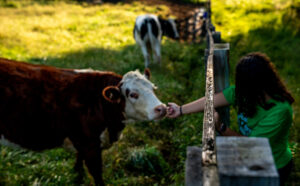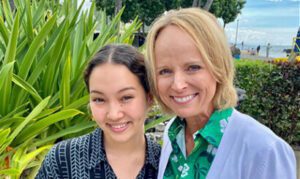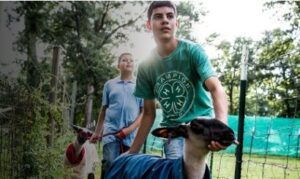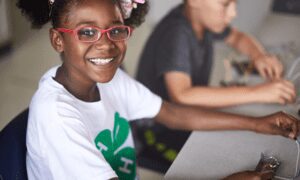I was pleased to have the opportunity to speak with him about 4‑H when he was growing up, and where it’s going today.
You were in 4‑H in the 1960s and 70s. What kinds of things were 4‑H’ers doing then?
Tony Frank (TF): A lot of livestock and farm projects. I did cattle and hogs, some veterinary science projects—which wound up becoming my career when I went on to vet school after college. And as I went through 4‑H, I held a lot of officer positions—secretary treasurer, president, vice president.
TF: Virtually everything you need to know as a leader you experience in those 4‑H offices. As secretary, you learn the importance of getting other people involved to get work done, and as treasurer you learn the importance of the trust that comes with dealing with other people’s money and funds. As the vice president, you learn to put other people first, and then as the president you learn what it’s like to represent a group of people.
At the end of the day, it’s those basic things—how do you get people involved, how do you make sure everyone’s voice is heard, how do you represent your constituents faithfully—those are the things good leaders have in every organization.
I’m happy to hear that, because developing leadership skills is still very important in 4‑H. We still have those roles and try to create more leadership positions so that more young people can learn critical life skills.
TF: I don’t think I realized at that time what I was getting out of those 4‑H leadership roles. I think without realizing it, I was part of one of the greatest leadership programs out there, and that’s 4‑H.
Did you learn anything else in 4‑H that is relevant to your life today?
TF: One of the first science-oriented projects I ever did was a 4‑H project. It was keeping track of data in a livestock project. There were many pieces of that which came to replicate my tasks later on as a researcher.
As an educator, do you think 4‑H does a good job of getting kids interested in STEM?
TF: 4‑H finds exciting ways to draw young people into STEM. Those might be animal-related projects, rocketry projects or robotics projects. Those are all great ways to get young people involved, but the important things are the underpinnings. Not only are there a lot of job opportunities in STEM, but it’s also a critical aspect of what we do as a country. It’s critical to our global economic competitiveness.
Were you thinking about any of these things back when you were 18 and in 4‑H? What was important to you then?
TF: The world was a much smaller place in general back in the late 60s and early 70s. I certainly didn’t have much of a worldview. If I were to tell you what my greatest goal was, it was probably to get an 8-track player for my pickup truck.
Today, 18-year-olds are a lot more focused on their future and more connected to a much larger world. I think 4‑H helps open the world up for a lot of kids.
What did you wish you knew when you were 18?
TF: I wish I had known that there were so many opportunities out there. There were so many more things that I could have participated in through 4‑H, like state-level leadership activities, the national organization, and even international opportunities. Those things add a great deal of value, and I sure wish I knew those opportunities were there.
As the head of a university, you work with plenty of young people. What advice do you give your students who are 18?
TF: First, take advantage of all the opportunities that are out there. There are always more opportunities than you realize at 18. Just dig in and immerse yourself; get involved in as many things as you can because they’ll all benefit you.
And secondly, know that there’s a lot of time ahead of you. I think that there’s a sense of urgency sometimes. At 18. you don’t realize that you have a very long life ahead of you. So while you should immerse yourself in your opportunities, you should also take risks and try things. Some things won’t work out, but you’ll have a lot of chances to redirect. Over the course of your life you can have so many opportunities to serve in leadership roles in your community. You’ll find the right place to make a difference.
Anything else you want to add about your 4‑H experience?
TF: I want to thank all the volunteer leaders. They made a big difference in my life and I know in the lives of so many other 4‑H’ers.
















